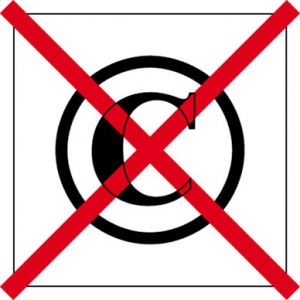1710; The "Statute of Anne" was the first attempt to place value on original creations of writings by creating a monopoly rite for controlling printing.
1734; The "Hogarth's Act" or "Engravers Act" was the first recognition of the moral rights of good Samaritan visual artists to control potentially immoral usage of art.
Hogarth's
engravings were perhaps the first political cartoons and portrayed politicians soliciting partially clothed prostitutes.
1766; William Hogarth's spouse was granted the right to control usage of potentially immoral art by her late husband.
1765~9; William Blackstone wrote the second volume of the "Commentaries on the Laws of England" titled "Rights of Things" and in the 26th chapter or page 541 of 1269 in this PDF.
In Earth's first authoritative book on law, Sir William Blackstone
first wrote a new word or coined a word never included in Samuel Johnson's
authoritative "Complete Dictionary of the English Language".
1776-1781; The Revolutionary War
1787; Samuel Johnson's
authoritative "Complete Dictionary of the English Language" was used while composing the United Sates' Constitution in 1787 and is why this new word is not used in the"Progress Cause".
The
most well known U.S. publisher at the time, Benjamin Franklin, felt the
Constitution was too important an international document to be used to
"coin" a word and made sure George Washington did not use
the first State of the Union speech to propose a new word as well.
Benjamin Franklin was an elderly publishing genius who died in 1790
shortly after the first State of the Union was given.
Benjamin
Franklin was too ill to give his own speech encouraging unanimous
approval of the Constitution in 1787 but had this speech delivered by
proxy given Benjamin Franklin's attention to this nation building
publication.
1790 01/08; First State of the Union by George Washington mentioning the need to protect intellectual property.
"Nor am I less persuaded, that you will agree with me in
opinion, that there is nothing which can better deserve
your patronage than the promotion of science and literature.
Knowledge is in every country the surest basis of public
happiness."
1790 04/17; Benjamin Franklin died.
1790 05/31; The 1790 Copy[rite] Act was passed into law as written by Noah Webster copying the 1710 "Statute of Anne"
ritual or RITE but not recognizing the right of a good Samaritan visual
artist or spouse to control usage of potentially immoral visual
presentations.
1806; [sic]"copysight"
[sic]"Cop'ysight", s. the sole right to print a book. Was actually the
first dictionary on Earth with copyright but is misinterpreted by OCR
reading of the mutilated printed page seen HERE
in "Johnson's dictionary of the English language, in miniature. To
which are added, an alphabetical account of the heathen deities, and a
copious chronological table of remarkable events, discoveries, and
inventions" See here as 282/pg PDF of scanned book. See copyright on page 56.
1828; copyright; n. The sole right which an author has in his own original literary
compositions; the exclusive right of an author to print, publish and
vend his own literary works, for his own benefit; the like right in the
hands of an assignee.
First appearance in an American dictionary of the word
copyright defined without any provision for honor like already
existed since 1734 in England due to the rule of law.
1973 01/23; Roe v Wade SCOTUS ruled abortion became a private human right for a time but this time was not
described precisely and suggested to be politically addressed.
1976; The Copy[rite] Act of 1790 was wholly rewritten.
1978 07/03; FCC v Pacifica, SCOTUS recognized the duty of the FCC to regulate indecent communications.
1990;
The United States passed 17 U.S.C. §106A to make U.S. copy[rite]law
appear to respect preserving moral honor to remain Berne
Convention compliant.
2010; Lord Most Honorable Jimm Larry
Hendren ruled 17 U.S.C. §106A does not protect against "online" uses of
art that harm artist's honor.
2014; Hon Timothy L. Brooks dismissed a complaint as moot without reading the complaint or Summary Judgement Motion after ex parte
communications with Google Inc attorneys was done. Discussing quick
dismissal of the now dismissed litigation in light of prior GOOG
litigation was unjust and immoral. The fact these ex parte communications with judicial staff were then noted in GOOG billing documentation make this injustice a plain fact and not just a speculative claim.
Fine Art America does outstanding artwork but did not allow this to remain an open thread.
http://fineartamerica.com/showmessages.php?messageid=2083303


No comments:
Post a Comment